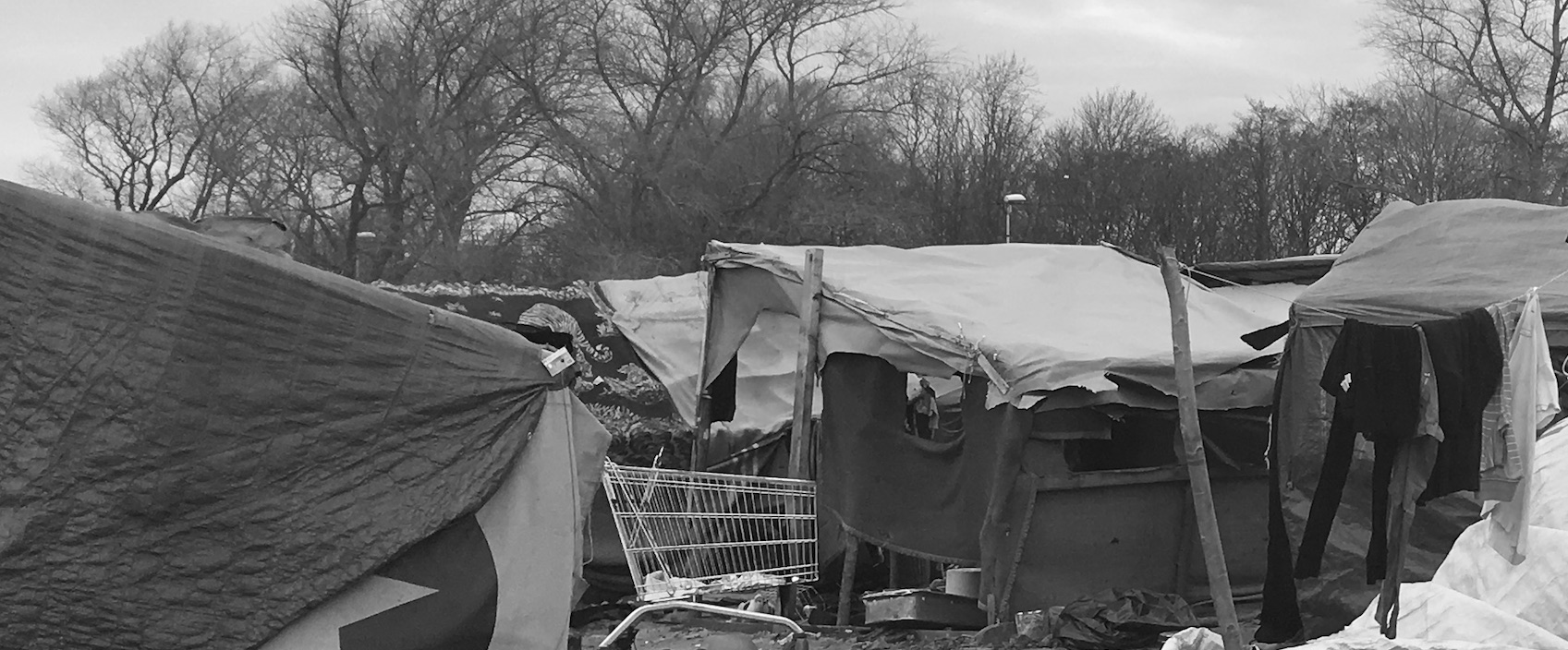The response of the authorities to crisis has been on my mind, particularly since I visited the camps in Calais and Dunkirk. The differences between the ‘Jungle’ in Calais and the NGO run camp 30 miles away in Dunkirk are remarkable, the latter better equipped, but its regimented wooden huts and purpose-built communal areas feel sterile, lifeless, controlled.
It’s easy to criticise what’s gone on, but also easy to understand the motivations. I can see in me, for instance, a very strong desire to quash the chaos, to create certainties and prevent mayhem and confusion. Feeling a lot of pain, I want answers, I want to work things out, I don’t like the idea of sitting with the confusion and the pain, and working out what to do from there. But I’m also learning that the desire to impose certainty, to shore up our lives as quickly as possible with theories, resolutions, action, can be counterproductive.
These different approaches, are summed up in a political context by Noam Chomsky in a chapter of his book On Anarchism. In answer to a question about anarchy and its correlation to ‘chaos’, he says:
‘chaos’ is a meaning of the word, but it’s not a meaning that has any relevance to social thought. Anarchy as a social philosophy has never meant ‘chaos’ – in fact anarchists have typically believed in a highly organised society, just one that’s organised democratically from below.
Responding to another question, Chomsky makes it clear that he doesn’t think existing institutions should be torn down, because without them, people might be exposed to even greater hardship, as is the case with the welfare state.
And given the accelerating effort that’s being made these days to roll back the victories for justice and human rights which have been won through long and often extremely bitter struggles in the West, in my opinion, the immediate goal of even committed anarchists should be to defend some state institutions, while helping to pry them open to more meaningful public participation and ultimately to dismantle them in a much more free society.
There are practical problems of tomorrow on which people’s lives very much depend, and while defending these kind of programmes is by no means the ultimate end we should be pursuing, in my view we still have to face the problems that are right on the horizon, and which seriously affect human lives. I don’t think that those things should be forgotten because they might not fit within some radical slogan that reflects a deeper vision of a future society. The deeper visions should be maintained, they’re important – but dismantling the state system is a goal that’s a lot farther away, and you want to deal first with what’s at hand and nearby, I think.
Chomsky goes on to argue that it’s “completely realistic and rational” to work within structures that you are opposed to because it helps us move towards situations where you can challenge the structures. This inspires me on a lot of levels, one of them being the fact that it facilitates long term vision and direction of travel while providing a means of dealing with the here and now.
There’s a lot in the book about anarchy that has also helped me think differently about the things that prevent me dealing with the pain of my current situation without trying to control it, nor to escape into far off ideals. I think if I can jettison the old patterns of defensiveness and barrier building that have kicked in during this time of isolation, then I can begin a different conversation about my engagement with the world and my role in it. The same questions remain as to Who? What? Where? When? and even Why? but I feel ready to begin to explore, slowly, what it is that can be built in the landscape of my life, as well as to start considering a different approach to my involvement with life and others – one that is less afraid of uncertainty, more open to things unfolding, trusting others and allowing things to happen.

Leave a Reply
You must be logged in to post a comment.